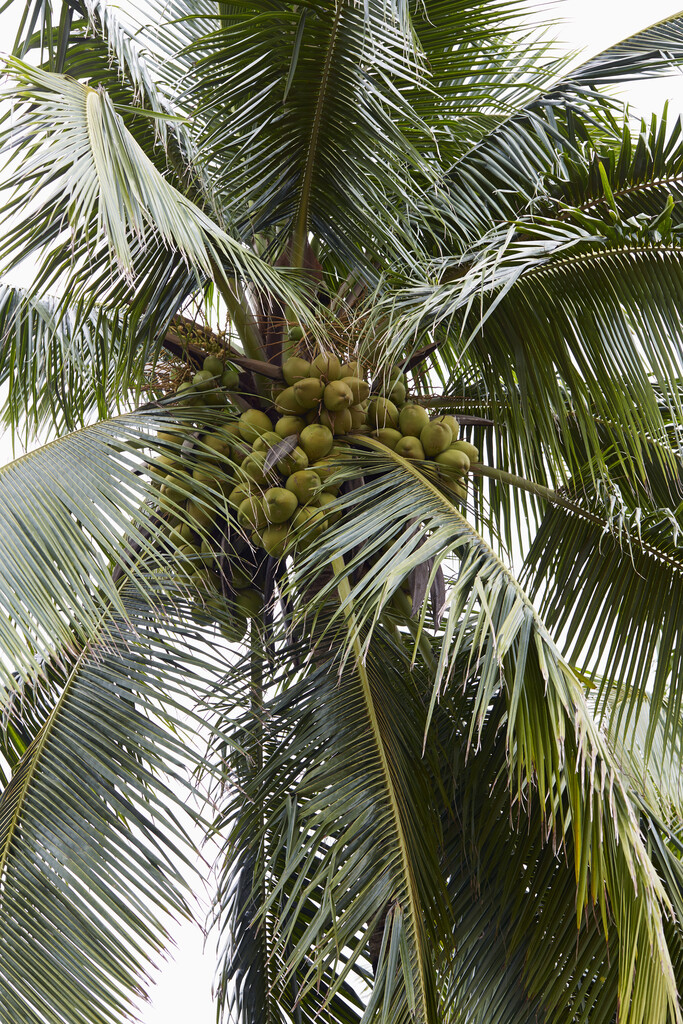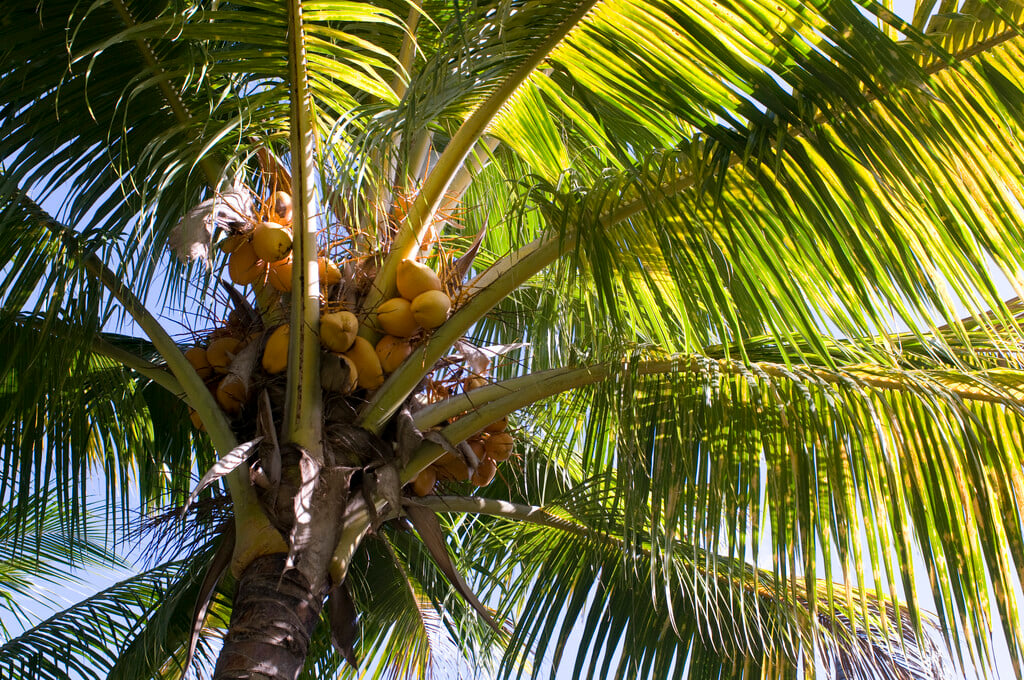Cocos nucifera (F)
coconut
A single-stemmed palm, forming a tree to 25m in the tropics, prized for its elegant form and edible seeds (coconuts). In frost-prone areas, young specimens can be grown as short-lived foliage plants in a warm conservatory, or as houseplants
Size
Ultimate height
1–1.5 metresTime to ultimate height
1–2 yearsUltimate spread
0.1–0.5 metresGrowing conditions
Moisture
Moist but well–drainedpH
Acid, Alkaline, NeutralColour & scent
| Stem | Flower | Foliage | Fruit | |
| Spring | Green | |||
|---|---|---|---|---|
| Summer | Green | |||
| Autumn | Green | |||
| Winter | Green |
Position
- Full sun
Aspect
South–facing or West–facing
Exposure
Sheltered Hardiness
H1ABotanical details
- Family
- Arecaceae
- Native to GB / Ireland
- No
- Foliage
- Evergreen
- Habit
- Columnar upright
- Genus
A genus of one species of palm known as Cocos nucifera or the coconut tree as we know it by best. This palm has a wide range of uses - food and drink, medicine, beauty products, coir, furnishing and decoration
- Name status
Correct
- Plant range
- Coastal tropical regions
How to grow
Cultivation
Under glass grow in peat-free. loam-based potting compost with additional sharp sand and fibrous organic matter, in full or bright filtered light with moderate humidity. In the growing season water moderately and apply a balanced liquid fertiliser monthly; water sparingly in winter. See palm cultivation indoors
Propagation
Propagate by soaking a fresh coconut (with husk still on) in warm water for 3 days. Then half bury the coconut, pointed end down, in a pot of peat-free, loam-based compost with additional sharp sand and fibrous organic matter. Water well and seal the whole lot up in a large plastic bag, putting it in a warm place and checking frequently for signs of germination; this may take 3-6 months
Suggested planting locations and garden types
- Houseplants
- Conservatory and greenhouse
- Edible fruit
Pruning
No pruning required
Pests
May be susceptible to glasshouse red spider mite, scale insects and mealybugs
Diseases
Generally disease-free
Get involved
The Royal Horticultural Society is the UK’s leading gardening charity. We aim to enrich everyone’s life through plants, and make the UK a greener and more beautiful place.

